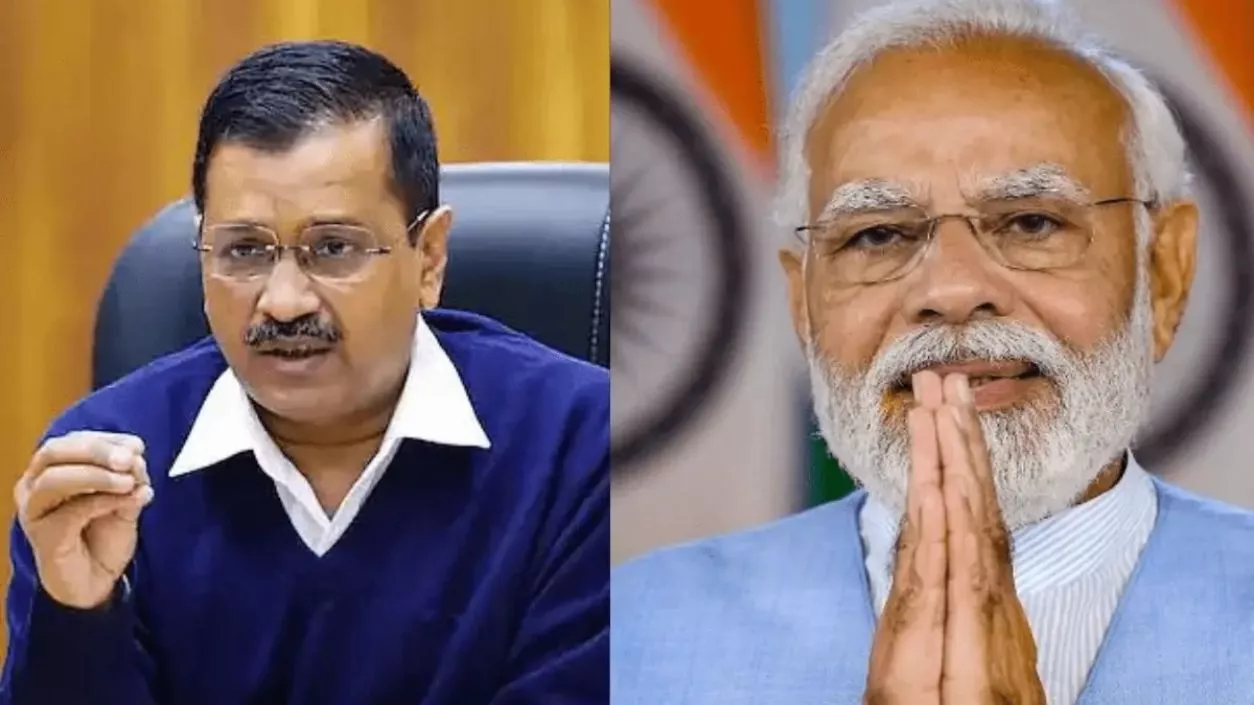Delhi Election: Voting on Feb 5, Results will be declared on 8th
.gif)
.gif)

On January 3, Prime Minister Narendra Modi inaugurated a series of crucial development projects in Delhi, aimed at enhancing the city’s infrastructure, housing, and educational facilities. Among the projects unveiled was the completion of 1,675 newly constructed flats for residents of "Jhuggi Jhopri" (JJ) clusters under the In-Situ Slum Rehabilitation Project in Ashok Vihar. The flats, designed to provide better living conditions for slum dwellers, were handed over to eligible beneficiaries during the ceremony.
Additionally, PM Modi virtually inaugurated the World Trade Centre at Nauroji Nagar, a project that replaces over 600 dilapidated quarters with state-of-the-art commercial towers. The World Trade Centre spans around 34 lakh square feet of premium commercial space and incorporates eco-friendly features such as solar energy generation, rainwater harvesting systems, and a zero-discharge waste management model. Similarly, the GPRA Type-II Quarters project at Sarojini Nagar was inaugurated, comprising 28 towers housing more than 2,500 residential units. These quarters are equipped with modern amenities, including rainwater harvesting, sewage treatment plants, and solar-powered waste compactors, aiming to promote sustainable living.
PM Modi also laid the foundation stone for Veer Savarkar College at Roshanpura, Najafgarh. The college is expected to provide expanded educational opportunities and is part of the government's broader initiative to improve educational infrastructure across Delhi. The project is designed to meet the increasing demand for higher education facilities in the city.
The Prime Minister emphasized the importance of these projects in improving the "Ease of Living" for Delhi residents, pointing out their role in addressing the city’s housing and infrastructure challenges. He mentioned the government’s efforts in upgrading essential services, such as water supply, electricity, and sewage systems, which have been key focus areas for the central government.
In his address, PM Modi sharply criticized the AAP-led Delhi government, accusing it of neglecting key sectors such as education and sanitation. He specifically pointed out that the Delhi government had not utilized central funds effectively, particularly in the education sector, where less than half of the allocated "Samagra Shiksha" funds had been spent. He also claimed that the AAP government had not taken adequate steps to address ongoing issues like water supply and sewage systems, which the central government had funded. Modi further accused the AAP government of attempting to distance residents from the benefits of central government schemes, which he argued could have improved the city's living conditions.
The Prime Minister highlighted the BJP's commitment to implementing central schemes smoothly, which he suggested would have a direct positive impact on the residents of Delhi. Modi reiterated that, under BJP governance, the city’s progress would continue, with a focus on housing, sanitation, education, and infrastructure development.
These developments reflect the ongoing effort by the central government to modernize and expand the infrastructure in Delhi, addressing the needs of its growing population. The government’s focus on green building practices, sustainable living, and educational infrastructure is aimed at improving the overall quality of life in the capital.